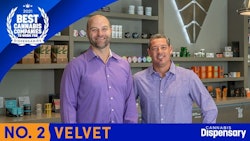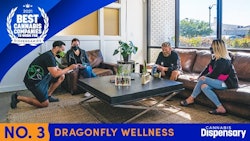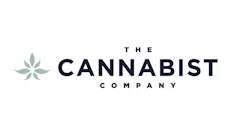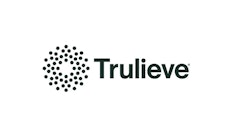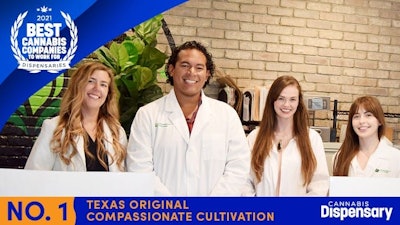
In March 2020, millions of people worldwide hunkered down at home to contain the rapid spread of the novel coronavirus.
Some of Texas Original Compassionate Cultivation (TOCC)’s 29 employees did the same. Those not critical to the physical daily operations of the vertically integrated medical cannabis company in Manchaca, Texas, supported social distancing recommendations by carrying out their duties from makeshift home offices, making it safer for rest of the team to mask up and press on at the facility. Pandemic or not, everyone at TOCC had an important role—and an essential one, even: to grow, manufacture and deliver cannabis medicine to Texans who need it most.
CEO Morris Denton believes the resolve of TOCC’s team to forge ahead during this chaotic and uncertain period can be directly attributed to the culture the business has fostered since its founding in 2017.
“Within the company, there is a real purpose-driven nature,” Denton says. “Everyone understands what it is that they do and how what they do contributes to the well-being of the patients that we serve. So there’s this real connective tissue … between what we do in our everyday operations and how it’s changing someone’s life.”
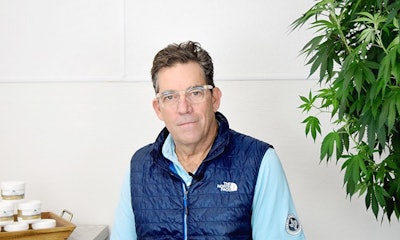
Photo courtesy of Texas Original Compassionate Cultivation
Morris Denton, CEO, Texas Original Compassionate Cultivation
As a result of that carefully crafted culture, TOCC earned the No. 1 ranking in Cannabis Dispensary’s 2021 Best Cannabis Companies to Work For list.
Striving to Be the Gold Standard
Long before COVID-19 reached its community, the building of TOCC’s small-but-mighty team had been centered around versatility and example setting.
As the first of only a handful of operators in perhaps the country’s most restrictive medical cannabis program—establishing a solid team was imperative to building trust not only within their own walls, but also with the Texas community and state regulators.
RELATED: How Compassionate Cultivation Differentiates Itself in Texas With In-House Breeding Program
“We are headquartered in Texas, but we consist of a bunch of Texans. We’re not an operator that has licenses in other states and has interest in other states. One hundred percent of our focus is on our business in Texas and serving the great people of Texas. As a result, we feel a real responsibility to create a business that can serve the market in an outstanding way,” Denton says. “We know that our future is entirely dependent on our ability to run our business on transparency and integrity in order to create the opportunity for our legislature to expand the program so more people can get safe, legal access to this medicine.”
Therefore, TOCC’s month-long hiring process is rigorous. Candidates are interviewed multiple times and with many members of the team, with questions focused on soft skills just as much, if not more, than the ability to simply do the job. “If we get the right person that demonstrates the right culture that wants to learn, that wants to challenge themselves, that wants to grow and wants to make history, then typically in this type of business we can employ that person anywhere. If we hire for culture as opposed of hiring for skills, we’re going to be a lot better off,” Denton adds.
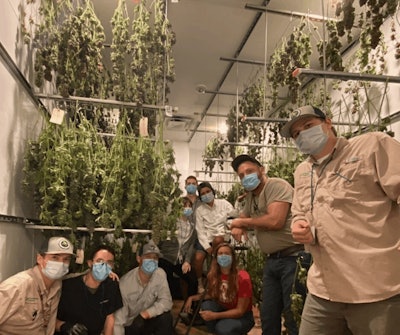
© Texas Original Compassionate Cultivation
Employees receive training in all aspects of TOCC's business to better understand the company as a whole.
New employees get a taste of the culture, but they also truly experience all facets of the operation. According to TOCC Chief of Staff & Culture Christina Burke, no matter where their day-to-day job will ultimately be, all employees receive training in cultivation, manufacturing, delivery and retail operations to realize a holistic view of the company and its mission.
“It gives employees a high level of confidence in our processes … especially our dispensary employees. When someone calls and asks about our cultivation techniques and our extraction and testing, they are confident in answering those questions,” Burke says.
That cross-training proved to be critical when 2020 came along. For example, even members of the leadership team, including Denton, Burke and Chief Revenue Officer Kelly Roland became delivery drivers during those critical months to help rotate shifts and keep up with the demand.
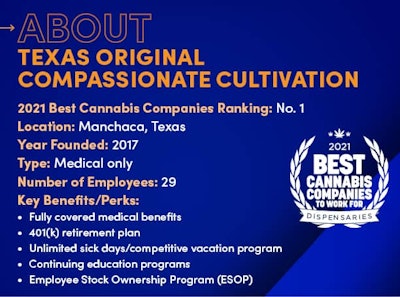
“One of the groups that was really high on my radar for concern was the drivers because … they can drive 2,000 miles easily over a couple of days. Texas is a really big state. They’re going door-to-door to patients, so their exposure level was potentially one of the highest,” Roland says, adding that 60% to 70% of their business is done by home delivery, even before the pandemic. Drivers would also frequently stay in hotels, which was deeply concerning, especially at the beginning of the pandemic. TOCC equipped drivers with extra personal protective equipment (PPE), including sanitizer to spray down the rooms. Roland and the team were particularly moved by delivery drivers’ commitment during this time. “They weren’t scared, they took all the proper precautions. They knew this was the last piece: giving the medicine, handing it to a patient,” she says. “Looking back at what the drivers went through and the risk they put themselves [in]. Despite all the PPE in the world, it was pretty incredible dedication.”
Back at the facility, TOCC also came up with a game plan for safety. TOCC leaders established daily, half-hour check-ins; rotated shifts company-wide every two weeks so employees could reduce their risk of exposure from others; created standard operating procedures (SOPs) to let employees know how to keep themselves safe while they were at work and outside of work; provided refills of PPE to employees and their families. “We took it extremely seriously,” Denton says. As a result, more than nine months passed before they had a positive case.
“We were going to do whatever we had to,” Denton says. “It was just a very impressive period of time…. I’m just blown away by the commitment and passion the team possesses. You can’t train that. People either have it and they bring it with them, and they instill it in others, or they don’t. That kind of culture—it’s been an incredible thing to watch and to be a part of.”
Treating Employees Well & Positioning for Growth
Unlimited sick time is one of the many benefits TOCC offers to full-time employees. Health benefits, including medical, dental and vision, are 100% covered. A 401(k) retirement plan with a “generous match” is offered, as are an Employee Stock Ownership Plan (ESOP) and competitive vacation and personal days.
“Especially in a company this small, sometimes you don’t see health benefits and those sorts of things,” Roland says. “It’s great thing [Denton and the Board of Directors] offer these to employees, even if they don’t have to as a company.”
Roland adds that a more intangible benefit of being a TOCC employee is its overall transparency. “We share how the company is doing financially, where the growth is coming from, what are we worried about, what’s happening in the industry,” she says. “I think we’ve done a good job as a company—and Morris, [as] a leader—in … helping [employees] understand how the business is run and why we make certain decisions. It’s a benefit of being small but something you can hold onto.”
“There’s this real connective tissue … between what we do in our everyday operations and how it’s changing someone’s life.” – Morris Denton, CEO, Texas Original Compassionate Cultivation
Continuing education is also an important facet to strengthening the company, and so the company regularly sponsors employees to attend virtual classes, trade shows, and other programs so they can expand their cannabis knowledge and become more well-rounded team members. Within the company, TOCC establishes “mini task forces” that can fall beyond the scope of day-to-day operations that anyone with interest in a particular area can join to learn and help solve important issues cross-departmentally.
And when it comes to investing back into the community, TOCC employees volunteer their time to and support the Epilepsy Foundation of Texas, Texas Mothers Advocating Medical Marijuana for Autism (MAMMAs), the Coalition of Texans with Disabilities, Any Baby Can (which provides support to children with special health needs), and the Autism Society of Texas.
Roland believes all of these facets of the company directly correlate to employee retention.
The Path Forward
With all that the TOCC has accomplished so far—Denton and his leadership team know they have much more to do to improve the lives of Texas and reward their employees for helping them on that journey.
Burke says she’d like to eliminate the phrase, “You don’t have a qualifying condition,” in the state of Texas. “I’d just like to be able to just say, ‘Yes, we can help you,’” she says.
“There’s really not a worse moment than having a patient calling in and [sharing] an incredibly moving and sometimes tragic story with you about the journey they’re on … and at the end of that having to tell them, ‘I can’t help you.’ And that unfortunately happens every day,” Roland adds. “It’s a horrible thing to have to say to someone at the end of a conversation and not to have to do that would be pretty incredible.”
Denton believes there’s a clear path forward to improve access. “We have a very precise vision, and the vision is to transform Texas through the power and truth of this plant and the medicine it creates,” he says. “And then we’ve got a few operating tenets [which] are to create the highest-quality, best-in-class medicine; to operate with transparency and integrity as a reflection of the values of the state of Texas; and the third is to create a business that is self-sustaining and can return significant value to its investors and to its employees. So that third operating tenet is something that’s really important to me. And in order for that to happen, we need to see legislative expansion. We need more Texans to get safe and legal access to this medicine. So our agenda, which is predominantly, if not exclusively, patient-driven, [is] driving that through our patients to the legislature.”
Denton says that patient stories will help the legislature expand access to medical cannabis to more people, with more conditions being improved, as well as increased levels of THC.
“When that happens, then this business becomes a self-sustaining, valuable business that can provide significant returns to its investors as well as to its employees. So that’s what I wanna do. I want to be able to reward our employees for their hard work, for their commitment, for their passion, for their integrity, with significant value.”










